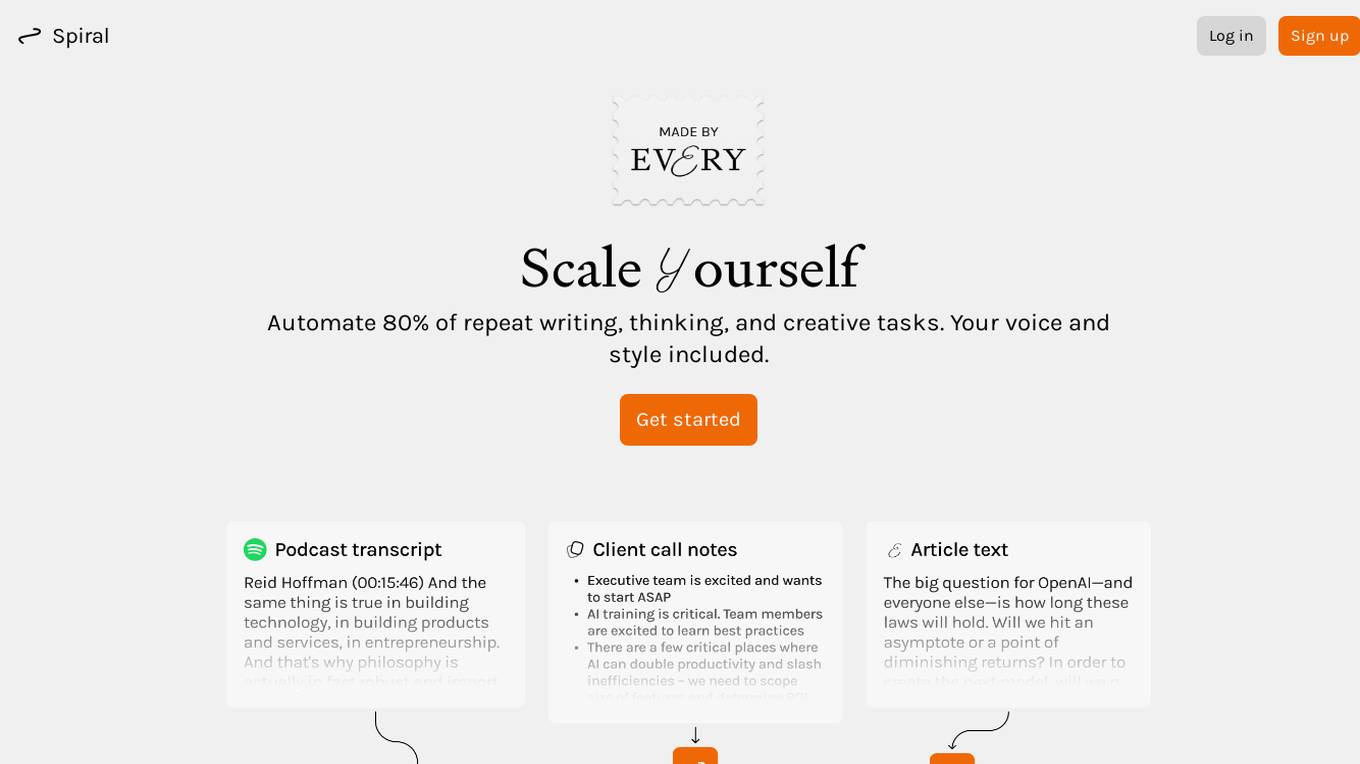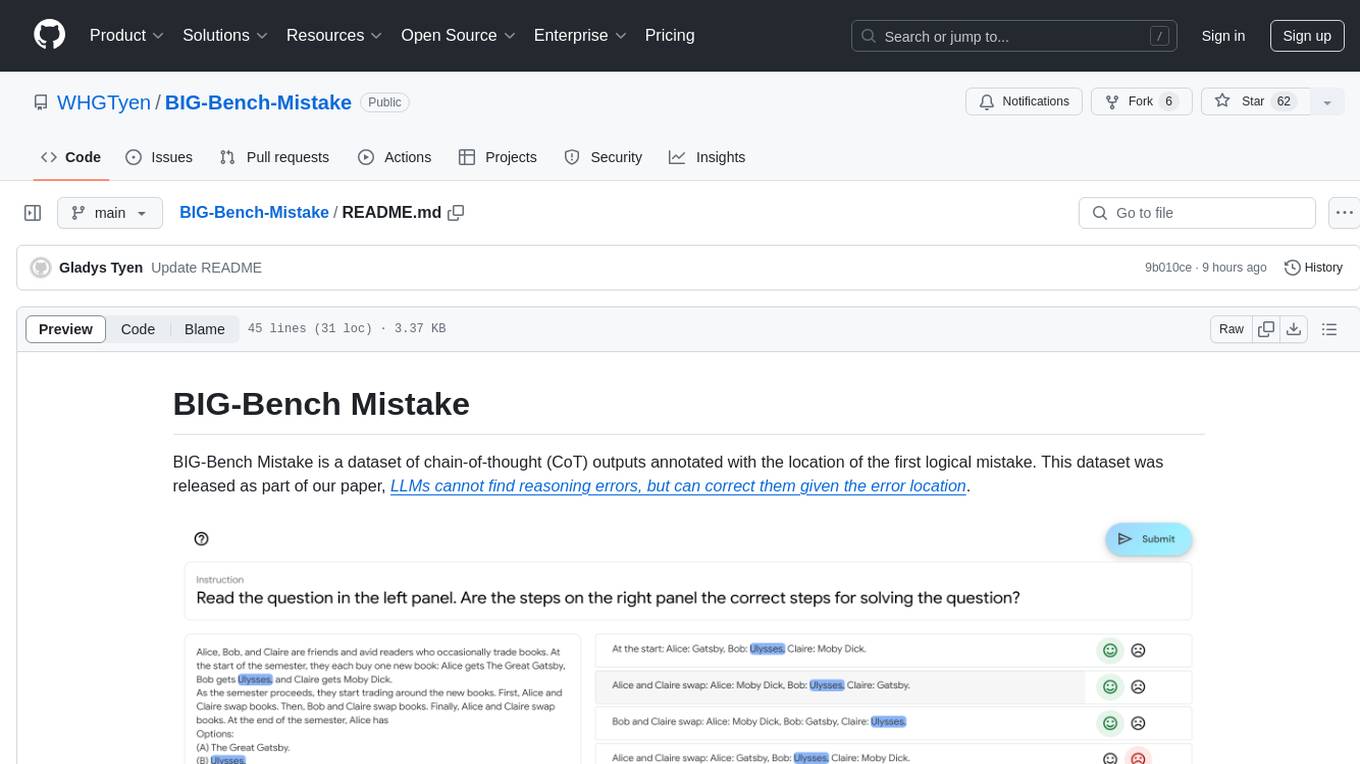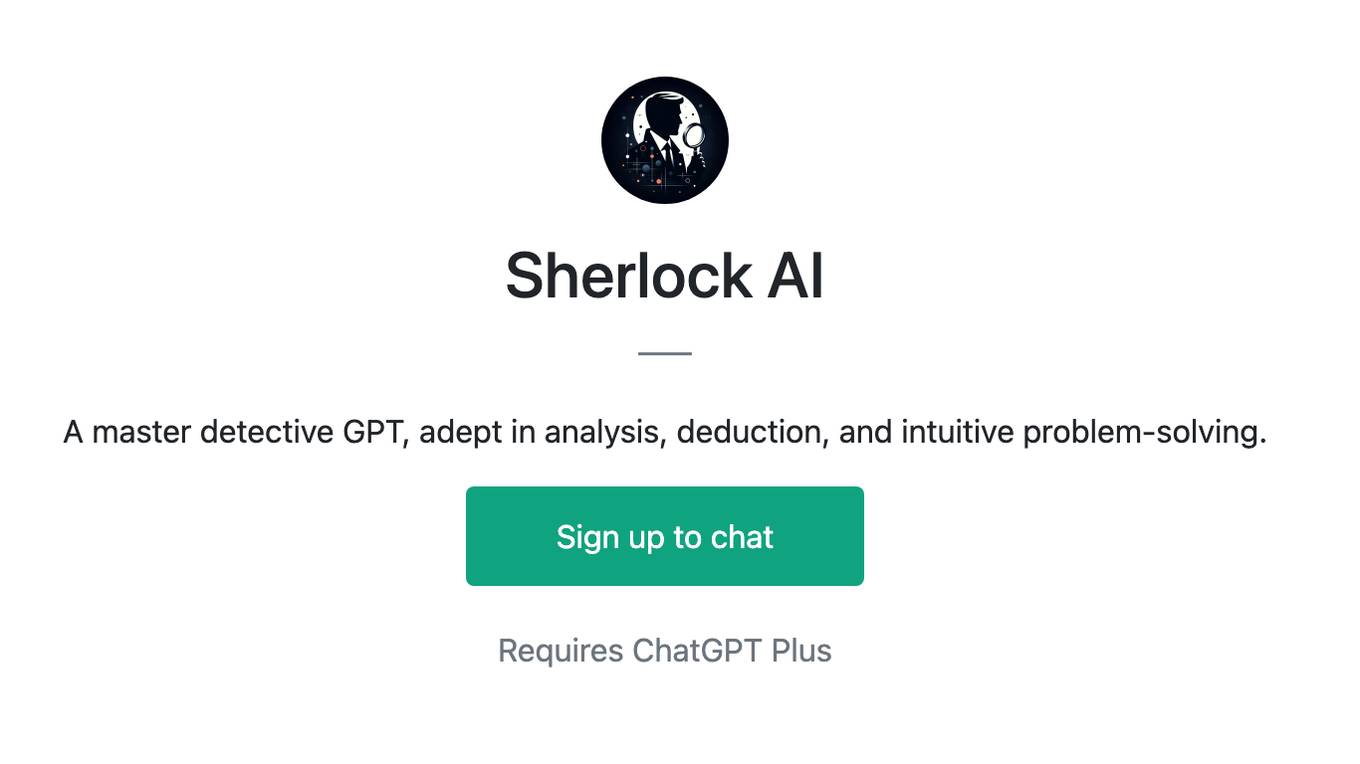Best AI tools for< Deduce Logic >
1 - AI tool Sites

Spiral
Spiral is an AI-powered tool designed to automate 80% of repeat writing, thinking, and creative tasks. It allows users to create Spirals to accelerate any writing task by training it on examples to generate outputs in their desired voice and style. The tool includes a powerful Prompt Builder to help users work faster and smarter, transforming content into tweets, PRDs, proposals, summaries, and more. Spiral extracts patterns from text to deduce voice and style, enabling users to iterate on outputs until satisfied. Users can share Spirals with their team to maximize quality and streamline processes.
1 - Open Source AI Tools

BIG-Bench-Mistake
BIG-Bench Mistake is a dataset of chain-of-thought (CoT) outputs annotated with the location of the first logical mistake. It was released as part of a research paper focusing on benchmarking LLMs in terms of their mistake-finding ability. The dataset includes CoT traces for tasks like Word Sorting, Tracking Shuffled Objects, Logical Deduction, Multistep Arithmetic, and Dyck Languages. Human annotators were recruited to identify mistake steps in these tasks, with automated annotation for Dyck Languages. Each JSONL file contains input questions, steps in the chain of thoughts, model's answer, correct answer, and the index of the first logical mistake.
2 - OpenAI Gpts

Sherlock AI
A master detective GPT, adept in analysis, deduction, and intuitive problem-solving.
